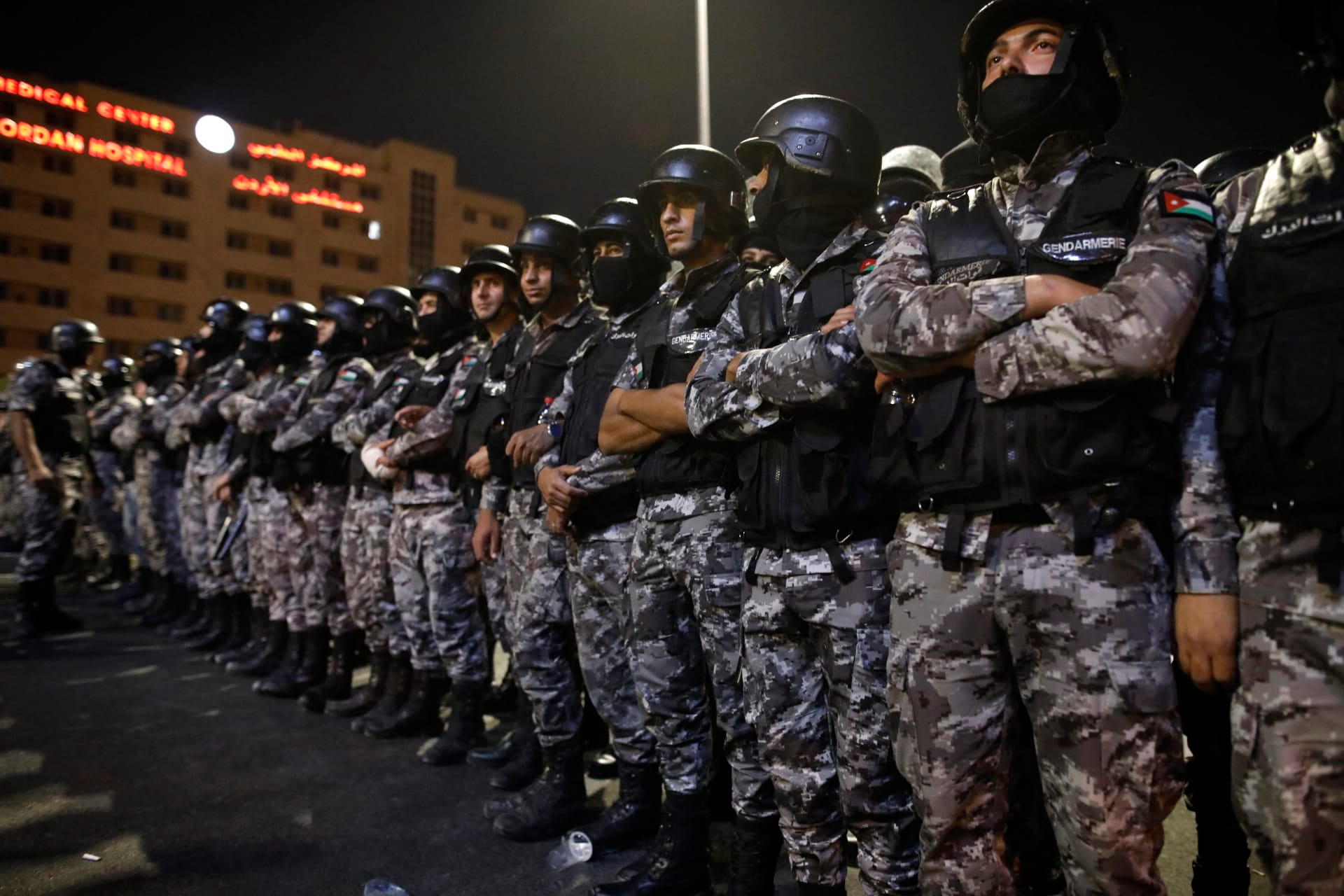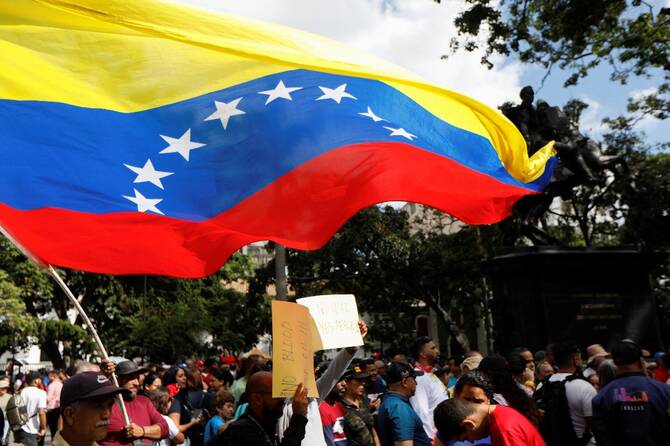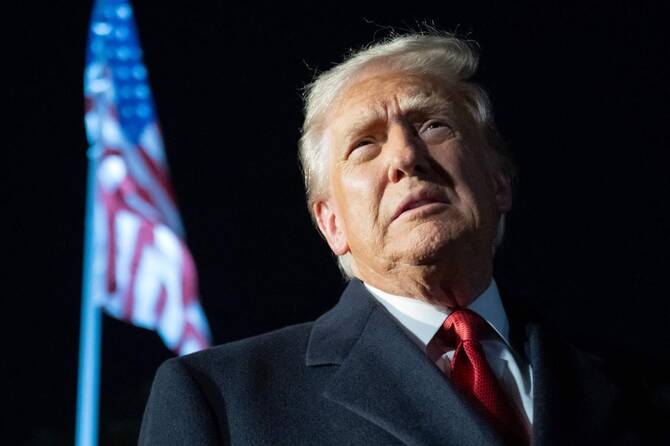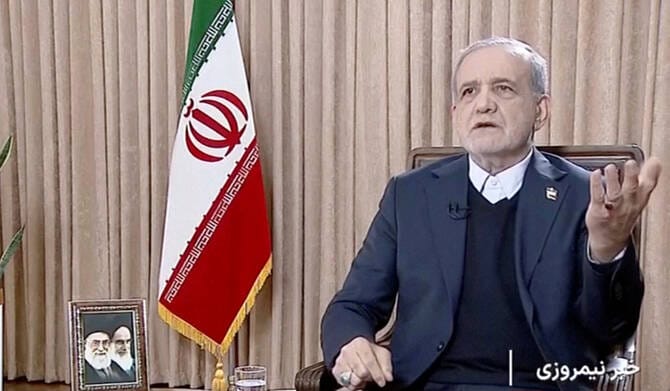Khamenei’s Escalation and Threats to Gulf and Islamic Countries: Nuclear File- Stubbornness Reveals Weakness
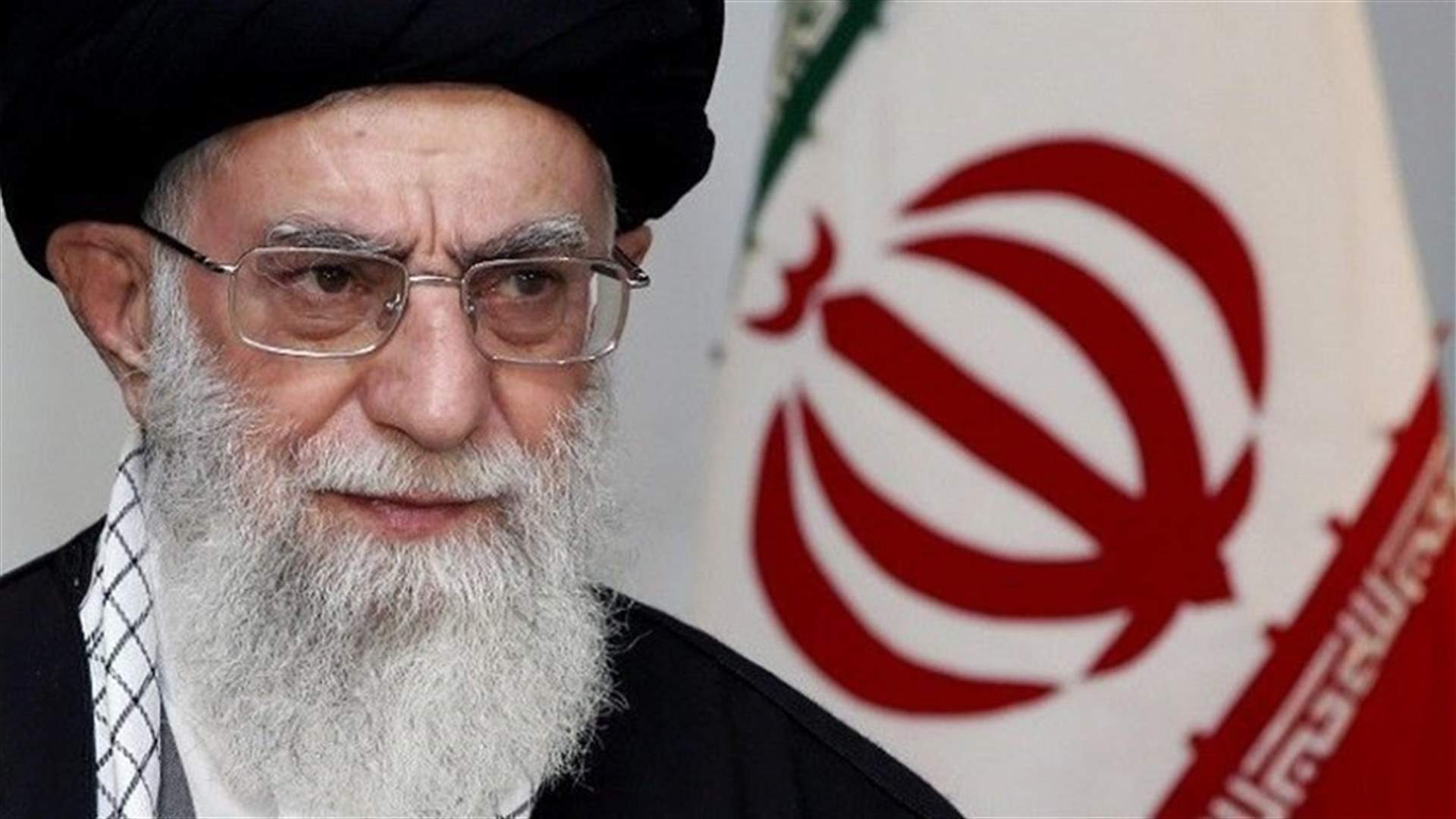
On June 4, 2025, Ali Khamenei, the Supreme Leader of the Iranian regime, delivered a harsh and alarming speech on the anniversary of Khomeini’s death. In this speech, he revealed a deep state of desperation and fear within the regime. His remarks did not only emphasize an uncompromising stance on Iran’s nuclear program but also included unprecedented direct threats against Islamic countries and Gulf states—particularly Saudi Arabia, Bahrain, and the UAE—who have moved toward normalizing relations with the US or opposed the regime’s expansionist policies.
Khamenei bluntly warned:
“If any Islamic country, in any way or under any pretext, supports the Zionist regime, whether by normalizing relations with America, closing the path of aid to Palestine, or justifying Zionist crimes, they should know for sure that eternal shame will remain on their foreheads.”
These words were not mere passing threats; they reflect the internal tension and collapse the regime is experiencing, as it tries to regain its weakened stature by escalating threats against its regional and external opponents.
Khamenei’s speech, full of contradictions and empty threats, does not demonstrate strength but rather exposes the despair of a dictator witnessing his regime crumble under intense internal and external crises. While beating the drums of confrontation with the world and clinging to his nuclear program as a lifeline, Khamenei ignores the fact that the Iranian people have rejected his regime. His attempts to intimidate the international community no longer succeed, and the Iranian people's resistance is growing daily. This nuclear gamble on the brink of collapse is nothing but a last-ditch effort to prolong the life of a crumbling regime. History teaches us that authoritarian regimes cannot withstand the will of a people demanding freedom and dignity. The end of the Velayat-e Faqih regime is near, as the Iranian people move closer to realizing their aspirations for a future free from oppression and tyranny.
Massoud Rajavi’s Voice Message on March 25, 2025: A Deep, Anticipatory Reading of Khamenei’s Approach and a Decisive Response
Months before Khamenei’s speech, on March 25, 2025, Massoud Rajavi, leader of the People’s Mojahedin Organization of Iran (PMOI/MEK), issued a voice message deeply analyzing Khamenei’s strategy and the regime’s future.
In this message, Rajavi astutely anticipated Khamenei’s path early on and said:
“The head of the Velayat-e Faqih snake in Syria and Lebanon has hit the rock; now is the time to crush the head of this snake inside Iran.”
Rajavi added:
“Khamenei’s threats are nothing but an April Fool’s lie; he fears the year 1404 and dreads sharing the fate of the Shah and Gaddafi. No ‘win-win’ negotiation is possible with Khamenei. He prioritizes preserving his regime at any cost.”
This profound analysis indicates that Rajavi did not merely react but foresaw the future with a strategic vision—that the regime is trapped in a deadlock with no escape except total uprooting from within through supporting resistance and revolution.
Nuclear File: Stubbornness Reflects Weakness
In his speech, Khamenei reiterated his insistence on the nuclear enrichment program, describing it as a “key” that cannot be compromised. He rejected the recent American proposal through Omani mediation, which demanded stopping enrichment in exchange for a regional alliance, calling it “contrary to the principle of self-sufficiency.” This obstinacy does not signify strength but reveals the regime’s fear of losing its last bargaining chips. The nuclear program, which Khamenei sees as a lifeline, is in fact a source of additional isolation, increasing international sanctions and worsening the suffering of the Iranian people. His arrogant remarks attacking the United States and “the Zionists” are only attempts to mask his weakness before the international community.
Trump and Congress: Maximum Pressure Policy Continues
Meanwhile, U.S. President Donald Trump, in his second term, continues the “maximum pressure” policy, emphasizing preventing Iran from acquiring nuclear weapons. In statements made on May 31, 2025, Trump expressed cautious optimism about a possible deal but warned of “military consequences” if negotiations fail. However, this optimism faces major obstacles, as the U.S. Congress limits any potential flexibility. Sanctions on Iran require legislative approval for lifting, making it difficult to reach a settlement without substantial concessions from Tehran—concessions Khamenei firmly rejects. This contradiction between the Iranian regime’s stubbornness and the strict American stance makes negotiations a dead end.


